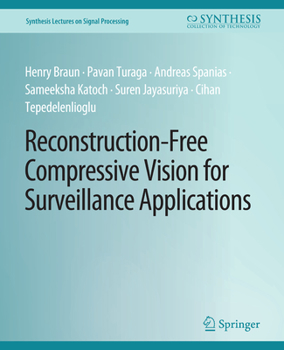Reconstruction-Free Compressive Vision for Surveillance Applications
Select Format
Select Condition 
Book Overview
Compressed sensing (CS) allows signals and images to be reliably inferred from undersampled measurements. Exploiting CS allows the creation of new types of high-performance sensors including infrared cameras and magnetic resonance imaging systems. Advances in computer vision and deep learning have enabled new applications of automated systems. In this book, we introduce reconstruction-free compressive vision, where image processing and computer vision algorithms are embedded directly in the compressive domain, without the need for first reconstructing the measurements into images or video. Reconstruction of CS images is computationally expensive and adds to system complexity. Therefore, reconstruction-free compressive vision is an appealing alternative particularly for power-aware systems and bandwidth-limited applications that do not have on-board post-processing computational capabilities. Engineers must balance maintaining algorithm performance while minimizing both the number of measurements needed and the computational requirements of the algorithms. Our study explores the intersection of compressed sensing and computer vision, with the focus on applications in surveillance and autonomous navigation. Other applications are also discussed at the end and a comprehensive list of references including survey papers are given for further reading.
Format:Paperback
Language:English
ISBN:3031014138
ISBN13:9783031014130
Release Date:May 2019
Publisher:Springer
Length:86 Pages
Customer Reviews
0 rating





